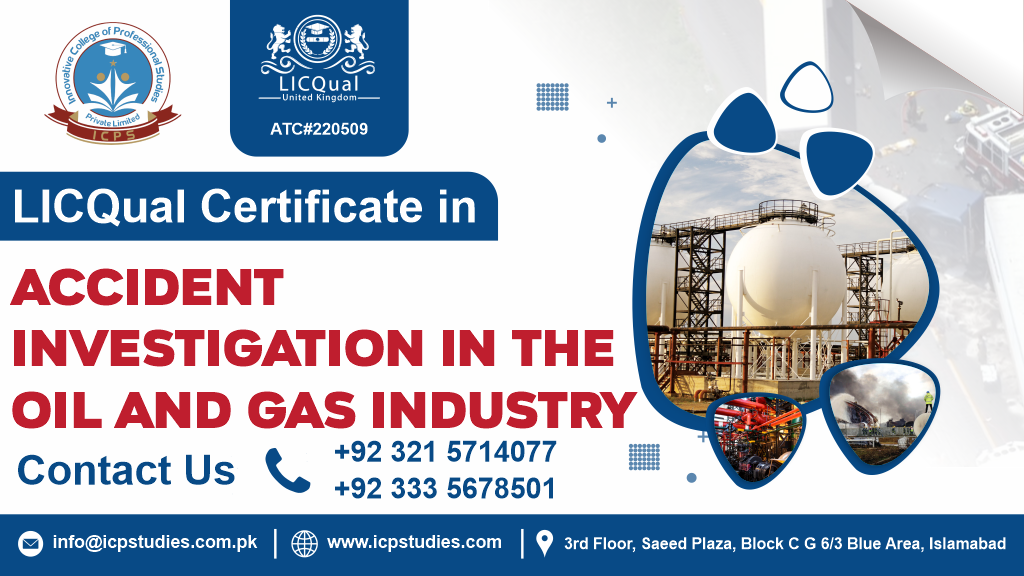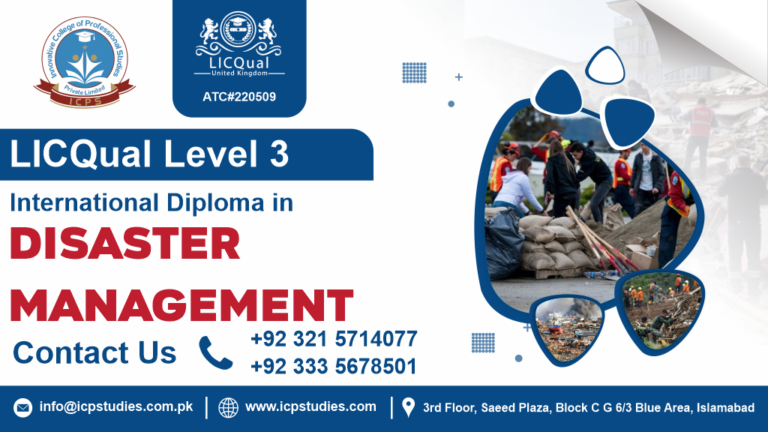In the vast and dynamic realm of the oil and gas industry, safety is paramount. With operations ranging from exploration and drilling to refining and distribution, the sector presents unique risks and challenges that demand meticulous attention to safety protocols and accident prevention. However, despite the industry’s best efforts, accidents can still occur, necessitating thorough investigation to determine their causes and prevent recurrence. This is where the significance of a Certificate in Accident Investigation in the Oil and Gas Industry shines through.
The oil and gas industry is inherently hazardous due to the complex processes involved, including heavy machinery, volatile substances, and high-pressure environments. Despite stringent safety measures, accidents ranging from minor incidents to catastrophic events can and do happen. These accidents not only endanger lives but also pose significant environmental and financial risks.
Certificate in Accident Investigation in the Oil and Gas Industry is not only a commitment to safety excellence but also a strategic decision to mitigate risks and drive operational efficiency. By equipping professionals with the knowledge, skills, and credentials to conduct rigorous accident investigations, organizations can safeguard lives, protect the environment, and uphold their reputation in a challenging and dynamic industry. As the oil and gas sector continues to evolve, the need for competent accident investigators will remain paramount, making this certification a valuable asset for individuals and organizations alike.
All About Certificate in Accident Investigation in the Oil and Gas Industry
Course Overview
The “Certificate in Accident Investigation in the Oil and Gas Industry” is a specialized training program designed to equip professionals with the knowledge, skills, and techniques necessary to conduct thorough and effective accident investigations within the oil and gas sector. This certificate program typically covers a range of topics relevant to accident investigation, including investigation techniques, regulatory compliance, risk assessment, and communication/reporting.
Participants in this program learn systematic approaches to accident investigation, which may include methods for data collection, evidence preservation, witness interviews, and analysis methodologies. They also gain an understanding of relevant laws, regulations, and industry standards governing accident investigation in the oil and gas industry, ensuring compliance and adherence to best practices.
Certificate in Accident Investigation in the Oil and Gas Industry” serves as a valuable credential for professionals seeking to advance their careers in health, safety, and environment (HSE) roles within the oil and gas sector. It demonstrates competency in accident investigation and positions individuals to contribute to safety excellence and risk mitigation within their organizations.
Study Units
Admission Criteria
Learning Outcomes for each study unit:
- Introduction to Fire Incident Investigation:
- Gain foundational knowledge of fire incident investigation principles, terminology, and methodologies.
- Understand the importance of fire investigation in ensuring public safety and preventing future incidents.
- Fire Behavior and Dynamics:
- Comprehend the principles governing fire behavior, including ignition, combustion, and extinguishment.
- Analyze the factors influencing fire spread and development in different environments.
- Hazardous Materials and Their Risks:
- Identify common hazardous materials and their associated risks in fire incidents.
- Understand safety protocols and mitigation strategies when dealing with hazardous materials.
- Preserving and Collecting Evidence at Incident Scenes:
- Learn techniques for properly preserving and collecting physical evidence at fire incident scenes.
- Understand chain of custody procedures to maintain the integrity of evidence for investigative purposes.
- Interviewing Techniques for Incident Investigation:
- Develop effective interviewing skills to gather information from witnesses, first responders, and other involved parties.
- Learn to conduct interviews sensitively and ethically, ensuring accurate and reliable information.
- Root Cause Analysis in Fire and Hazardous Materials Incidents:
- Learn methods for conducting root cause analysis to determine the underlying factors contributing to fire and hazardous materials incidents.
- Develop critical thinking skills to identify systemic weaknesses and recommend corrective actions.
- Incident Reconstruction and Analysis:
- Acquire skills in reconstructing fire and hazardous materials incidents based on evidence and witness testimony.
- Utilize investigative tools and techniques to analyze incident data and reconstruct the sequence of events.
- Safety Measures and Risk Management:
- Understand safety protocols and risk management strategies to mitigate hazards during fire incident investigations.
- Learn to prioritize responder safety while conducting investigations in potentially dangerous environments.
- Incident Reporting and Documentation:
- Develop proficiency in preparing comprehensive incident reports documenting investigative findings.
- Adhere to standardized reporting formats and protocols for accurate and thorough documentation.
- Communicating Findings to Stakeholders:
- Learn effective communication strategies to convey investigation findings to stakeholders, including emergency services, legal authorities, and the public.
- Present complex technical information in a clear, concise manner accessible to diverse audiences.
Ideal Candidate
Entry Requirements for the course “Introduction to Fire Incident Investigation”:
- Educational Background:
- High school diploma or equivalent qualification.
- Basic understanding of science, particularly in areas such as chemistry and physics, is beneficial but not mandatory.
- Language Proficiency:
- Proficiency in the language of instruction, typically English, demonstrated through standardized language proficiency tests or equivalent qualifications.
- Health and Fitness:
- Participants should be in good physical health to cope with the demands of the course, which may include outdoor activities and simulations.
- Legal Requirements:
- Compliance with any legal requirements or background checks necessary for enrollment in courses related to fire incident investigation, such as criminal record checks or clearances.
- Prerequisites:
- Some courses may have prerequisites, such as completion of basic firefighting training or relevant experience in emergency response or public safety fields.
- Technical Requirements:
- Access to necessary technology and equipment for participation in the course, such as computers with internet access for online components, as well as personal protective equipment (PPE) for practical sessions if required.
- Age Restrictions:
- Minimum age requirement, typically 18 years or older, due to the nature of the subject matter and potential safety considerations.
- Other Considerations:
- Depending on the institution offering the course, there may be additional requirements or recommendations, such as prior experience in emergency services, law enforcement, or related fields.
Learning Outcomes
This course is designed for individuals who are interested in or currently working in fields related to emergency response, public safety, or investigation, including but not limited to:
- Firefighters: Both new recruits and experienced firefighters looking to enhance their skills in fire incident investigation.
- Law Enforcement Personnel: Police officers, detectives, and other law enforcement professionals seeking specialized training in investigating fire incidents and hazardous materials incidents.
- Emergency Responders: Paramedics, emergency medical technicians (EMTs), and other first responders who may encounter fire incidents and hazardous materials incidents in the course of their duties.
- Safety Professionals: Occupational health and safety officers, industrial hygienists, and safety managers interested in gaining knowledge of fire behavior, hazardous materials, and incident investigation techniques to improve workplace safety.
- Insurance Investigators: Professionals working in the insurance industry involved in assessing fire claims and determining the cause and origin of fires.
- Building Inspectors and Code Enforcement Officers: Individuals responsible for ensuring compliance with fire safety regulations and investigating fire code violations.
- Forensic Scientists and Investigators: Those involved in forensic science and investigation who wish to specialize in fire scene examination and analysis of fire-related evidence.
- Students Pursuing Careers in Public Safety: Individuals studying criminal justice, fire science, forensic science, or related fields who want to gain foundational knowledge and practical skills in fire incident investigation.
- Emergency Management Personnel: Professionals responsible for coordinating responses to disasters and emergencies, including fires and hazardous materials incidents.
- Anyone Interested in Fire Safety and Prevention: Individuals with a general interest in fire safety and prevention who want to learn more about how fires start, spread, and are investigated, with the aim of contributing to community safety and prevention efforts.
FAQs about Certificate in Accident Investigation in the Oil and Gas Industry







